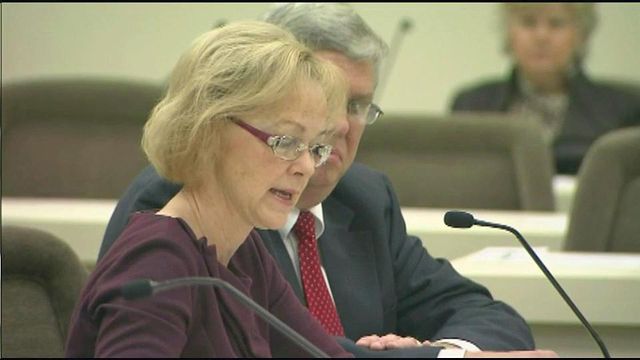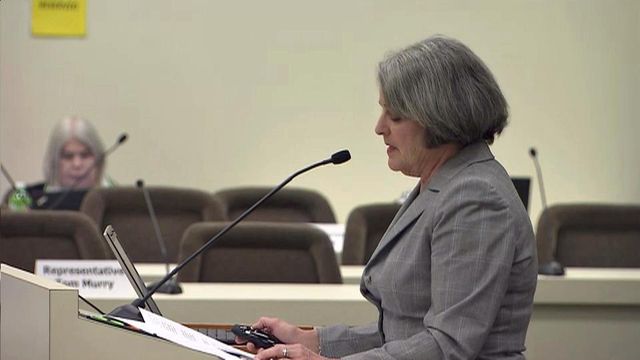DHHS staffers lay out progress on Medicaid billing system
State health officials tried to reassure lawmakers Tuesday that the much-maligned NC Tracks system that helps the state handle Medicaid billing is getting better and service providers are getting paid.
Posted — UpdatedDepartment of Health and Human Services Secretary Aldona Wos began her remarks to the legislative oversight committee with a mention of the Medicaid Advisory Group, formed since her Oct. 8 grilling by lawmakers. That group includes industry experts and lawmakers working on recommendations to reform the state's Medicaid system.
"We are moving forward," she said.
Wos noted the continuing concerns, raised by doctors, hospitals, medical device providers and others, about NC Tracks. Providers have complained for four months that the system isn't paying them as quickly as it should.
In last month's meeting, legislators peppered DHHS leaders about complaints concerning delayed or rejected claims, unhelpful call center workers and complicated medical coding.
"We must get providers paid for the work they do," Wos said.
Agency leaders said they were working to fix problems but said some defects would take up to six months to resolve.
"We are forcefully addressing these issues, and although progress is being made, we will not rest until all issues are resolved. I assure you, that where necessary, I will hold people accountable," she said.
But DHHS Chief Information Officer Joe Cooper said the technology is not solely to blame for delays associated with NC Tracks.
"The vast majority of claim denials are tied to the wrong taxonomy being used by the provider," Cooper said.
DHHS has deployed people across the state to to work one-on-one with doctors who aren't being paid correctly. Claims are being processed faster, and backlogs are dwindling, he told lawmakers.
"We've made a huge amount of progress, but we still have more work to do, particularly around the professional providers," he said.
Medicaid is a health insurance program that covers roughly 1.6 million of North Carolina's 9 million residents. The bulk of those served are children or the parents of children from low-income families, along with pregnant women, the elderly and disabled.
NC Tracks was designed to streamline provider payments, spot Medicaid fraud and provide state-level policy makers with detailed data on how quickly public dollars are being spent on the program.
While there are still fixes that need to be made, Cooper said, North Carolina's roll-out has gone more smoothly than similar networks did when they were put in place in other states.
"Our trajectory is good," he said.
Members of the committee appeared to be unsatisfied with the answers they were getting.
Wake Republican Sen. Tamara Barringer said she's still getting desperate calls from medical equipment providers who can't pay their bills. Senate Democratic Leader Martin Nesbitt said the data refutes Cooper's claim that progress is being made. He asked for an independent report on the program.
“From these numbers, and from what I’m hearing here today, I don’t think we’re fixing the problem," Nesbitt said. "We’re just generating more and more bills aren’t being paid.”
• Credits
Copyright 2024 by Capitol Broadcasting Company. All rights reserved. This material may not be published, broadcast, rewritten or redistributed.






